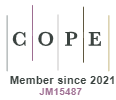O czasopiśmie
Cel i zakres tematyczny czasopisma
Czasopismo Acta Universitatis Lodziensis. Folia Librorum należy do serii zeszytów naukowych Uniwersytetu Łódzkiego. Pierwszy tom ukazał się w 1989 r., zastępując wydawane od 1981 roku Acta Universitatis Lodziensis. Folia Scientiarum Atrium et Librorum.
Opracowania redakcyjnego Acta Universitatis Lodziensis. Folia Librorum od początku podjęli się pracownicy dwóch placówek naukowych Uniwersytetu: Katedry Bibliotekoznawstwa i Informacji Naukowej Uniwersytetu Łódzkiego (aktualnie: Katedry Informatologii i Bibliologii) oraz Biblioteki Uniwersyteckiej.
W latach 1989-2001 funkcję redaktora naczelnego pełniła prof. Hanna Tadeusiewicz, a w skład rady naukowo-dydaktycznej serii wchodzili: prof. Janusz Dunin, Jan Janiak, Jerzy Andrzejewski i dr Bogumił Karkowski. W latach 2003-2008 zeszyty naukowe ukazywały się pod redakcją prof. Stanisławy Kurek-Kokocińskiej, w latach 2008-2015 pod redakcją prof. Jadwigi Koniecznej.
Obecnie redaktor naczelną czasopisma jest prof. Magdalena Przybysz-Stawska.
Decyzją Redakcji od numeru 1 wydanego w 2014 r. czasopismo ukazuje się jako półrocznik.
Problematyka artykułów publikowanych w Acta Universitatais Lodziensis. Folia Librorum skupia się na zagadnieniach szeroko pojętej nauki o książce, informatologii, nauki o komunikacji społecznej i mediach, nauki o kulturze i religii, w tym między innymi na tematyce związanej z:
- informacją naukową
- teorią i praktyką bibliotekoznawstwa i księgoznawstwa
- ruchem wydawniczo-księgarskim
- biografistyką księgoznawczą
- wykorzystaniem technologii informacyjnych do opracowania, przetwarzania i udostępniania zasobów elektronicznych
- rynkiem mediów współczesnych
- promocją książki i czytelnictwa
Celem czasopisma jest publikowanie oryginalnych prac, recenzji publikacji specjalistycznych i materiałów źródłowych odnoszących się do teorii i metodologii informacji naukowej i dziedzin pokrewnych w kontekście szeroko pojętej humanistyki. Tytuł dąży również do bycia swoistym forum dla rozpowszechniania prac naukowych i wyników badań dotyczących nauki o informacji oraz pozostałych dyscyplin przeprowadzających analizy społecznych oraz technologicznych aspektów działalności informacyjnej. Czasopismo służy także prezentowaniu krytycznych recenzji i polemik na temat publikacji dotyczących zagadnień biblioteko- i księgoznawstwa, (cyfrowej) komunikacji naukowej oraz sprawozdań z aktualnych wydarzeń z zakresu dziedzictwa nauki i kultury.
Wszystkie numery archiwalne (1-28) są dostępne w Repozytorium Uniwersytetu Łódzkiego.
Nasze czasopismo pozytywnie przeszło proces ewaluacji IC Journals Master List 2018, której wynikiem jest przyznanie wskaźnika ICV (Index Copernicus Value) w wysokości 63.31 pkt.
Czasopismo jest indeksowane w bazach ERIH PLUS, EBSCO, PolINDEX, HAL, CEJSH, BazHum, Polska Bibliografia Bibliologiczna i ARIANTA, a także w zasobach WorldCat, Google Scholar, ViFaOst i LitDok
Języki publikacji : polski, angielski
Liczba artykułów opublikowanych w ostatnim roku: 15
Punktacja MNiSW: 5 punktów (styczeń 2024)
Proces recenzyjny
Szczegółowa procedura recenzowania artykułów:
W pierwszym etapie redakcja dokonuje oceny formalnej tekstu.
Do oceny każdego zgłoszonego tekstu (poza recenzjami i sprawozdaniami) powołuje się dwóch niezależnych recenzentów afiliowanych poza Katedrą Bibliologii i Informatologii Uniwersytetu Łódzkiego.
W przypadku tekstów powstałych w języku angielskim, powoływany jest jeden recenzent afiliowany w instytucji zagranicznej.
Teksty nadsyłane do czasopisma są recenzowane zgodnie z zasadami obowiązującymi w czasopismach naukowych.
Proces recenzowania odbywa się według modelu double-blind review, w którym autorzy artykułów i recenzenci nie znają wzajemnie swojej tożsamości.
Recenzje mają formę pisemną i kończą się jednoznacznym wnioskiem co do dopuszczenia artykułu do publikacji lub jego odrzucenia.
Formularz recenzji do pobrania - pdfRaz w roku Redakcja zamieszcza na stronie internetowej czasopisma listę współpracujących recenzentów.
Polityka OA
Wszystkie artykuły dostępne są w Otwartym Dostępie (Open Access) na licencji CC BY-NC-ND 4.0 (Uznanie autorstwa – Użycie niekomercyjne – Bez utworów zależnych).
Czasopismo dostępne w Otwartym Dostępie od 2012 r. (zob. archiwalne zeszyty w Repozytorium UŁ). Pierwszy numer opublikowany w OJS w 2016 (zob. Archiwum).
Autor publikujący w czasopiśmie udziela Uniwersytetowi Łódzkiemu niewyłącznej licencji na korzystanie z utworu na wszystkich polach eksploatacji wymienionych w art. 50 Ustawy z dnia 4 lutego 1994 r. o prawie autorskim i prawach pokrewnych. Także w otwartym dostępie, w tym na zasadach licencji Creative Commons CC BY-NC-ND. Licencja obejmuje również prawo do udzielania dalszych licencji na wskazanych polach eksploatacji. Zob. Prawa autorskie
W związku z realizacją polityki otwartego dostępu do publikacji naukowych Uniwersytet Łódzki korzysta z upoważnienia Autora do deponowania utworu w Repozytorium UŁ i innych platformach dystrybucyjnych, zaś Autor zobowiązuje się do niekorzystania z wypowiedzenia umowy licencyjnej przez cały okres jej trwania. Zob. Oświadczenie Autora
Prawa autorskie osobiste są niezbywalne. Udzielanie licencji nie odbiera twórcy praw majątkowych. Autor może w pełni dysponować swoim utworem.
Licencja pozwala na kopiowanie i rozpowszechnianie utworu w dowolnym medium i formacie, pod warunkiem uznania autorstwa – należy oznaczyć imię i nazwisko twórcy lub innych podmiotów, których autorstwo należy uznać, informację prawnoautorską, informację licencyjną, notę o wyłączeniu odpowiedzialności oraz odnośnik do utworu, podać link do licencji i wskazać, jeśli zostały dokonane w nim zmiany z zachowaniem opisów wcześniejszych modyfikacji.
Wolno rozpowszechniać, przedstawiać i wykonywać utwór jedynie w celach niekomercyjnych oraz pod warunkiem zachowania dzieła w oryginalnej formie. Nie należy rozpowszechniać zmodyfikowanej treści, przetworzonego lub stworzonego na podstawie pierwowzoru nowego utworu (utwór zależny).
Pełny tekst licencji: https://creativecommons.org/licenses/by-nc-nd/4.0/legalcode.pl
Polityka prywatności
Nazwy i adresy e-mail będą wykorzystywane przez czasopismo wyłącznie do realizacji jego celów i nie będą udostępniane do innych celów lub komukolwiek innemu.





